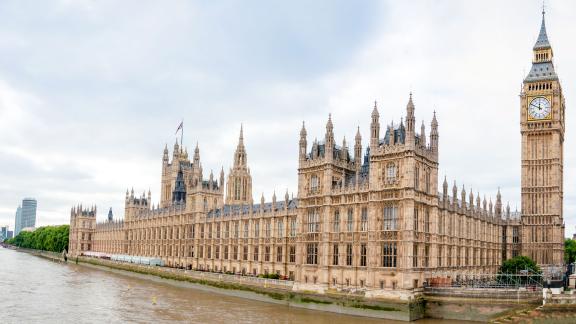Spring Budget 2024: what you need to know
Key points
The government announced an additional £2.5 billion of day-to-day revenue funding for the NHS in England in 2024/25 over what was planned last year. This will mean that NHS revenue funding will be largely flat in real terms compared to this year. Capital funding is unchanged.
This revenue is unlikely to account for either the costs of the ongoing financial impact of industrial action nor the ever-increasing backlog of care. It is therefore entirely possible that NHS England will top this up throughout the year, as was the case during 2023/24. We have been clear that this is an unacceptable and counterproductive way to run health planning and spending.
An NHS productivity review will result in £3.4 billion in capital investment to boost NHS productivity in the next parliament through a variety of AI, digital and other tech-related investments. This is so the NHS can increase its annual productivity increase to 2 per cent per annum by 2028/29, in line with the ambitions of the NHS Long Term Workforce Plan.
The Treasury says that the £3.4 billion ‘will be fully additional to the NHS’s existing tech and digital capital investment’, with £2.2 billion allocated in this Budget. The remaining £1.2 billion ‘will be earmarked from the wider capital envelope’. It is unclear where this will come from as budgets have not been set beyond 2025/26.
The review, which will start in 2025/26, will go some way towards our key election ask of at least £6.4 billion per year in additional capital funding. We will not know how much the overall capital budget will be (in addition to the £3.4 billion productivity plan) until the next Spending Review, which has been set for after the General Election.

Overview
There were two big announcements for the NHS in this Spring Budget.
A revenue funding increase for 2024/25
The government announced an additional £2.5 billion of day-to-day revenue funding for the NHS in England in 2024/25 over what was planned last year. Health resource departmental expenditure limits (DEL) will be £179.6 billion, of which NHS England will have £164.9 billion. This will mean funding remains largely the same in real terms after inflation.
Capital funding will stay the same as originally planned last year and increase to £12.6 billion in 2024/25.
A productivity review with significant capital investment, but not until 2025/26
The other big announcement was the Chancellor’s public services productivity review. The NHS productivity review will give £3.4 billion in capital investment to boost NHS productivity in the next parliament (i.e. not until after the General Election, and potentially a new government) 1 through a variety of AI, digital and other tech-related investments so the NHS can increase its annual productivity increase to 2 per cent per annum by 2028/29, in line with the ambitions of the NHS Long Term Workforce Plan. The Chancellor claims that the variety of measures will unlock £35 billion worth of savings from 2025-26 to 2029-30. Examples include:
- £430 million of investment to transform access and services for patients, giving them more choice and the ability to manage and attend appointments virtually, and enabling £2.5 billion savings over five years
- £1 billion of investment to transform the use of data to reduce time spent on unproductive administrative tasks by NHS staff, enabling more than £3 billion of savings over five years
- £2 billion to update fragmented and outdated IT systems across the NHS, reducing 13 million hours wasted by doctors every year and enabling up to £4 billion of savings over five years.
As part of this package, the government will work with NHS England to reduce the costs of agency staffing, including ending the use of expensive ‘off-framework’ agency staffing from July 2024, while ensuring that emergency cover can continue.
The government and NHS England will also invest £35 million over three years to improve maternity safety across England, with specialist training for staff, additional midwives and support to ensure maternity services act on women’s experiences to improve care.
NHS England will start reporting against new productivity metrics regularly from the second half of 2024-25, at a national, integrated care board (ICB) and trust level. New incentives will be introduced to reward providers that deliver productivity improvement at a local level, including through effective investment helping to deliver better outcomes. Further detail will be set out in the summer.
Other relevant announcements:
- HMT confirmed that the next Spending Review will take place after the General Election.
- The Chancellor cut National Insurance by 2 percentage points to 8 per cent and increased the threshold for child benefit from £50,000 to £60,000 for when the support tapers off.
- A new vape tax and an increase in tobacco levies will raise £500 million from October 2026.
- There will be £45 million of additional funding for medical research, including £3 million for Cancer Research UK.
- Over 2,000 additional places for children with special education needs and disabilities (SEND) across England, at a cost of £105 million. Locations will be announced in May 2024.
- Investment of £45 million to match funding to local authorities for an additional 200 open children’s home placements and £120 million for existing secure children’s home estate.
- A new Funding the Changing Futures programme, which is using locally led pilots in 15 areas to test a person-centred approach to improving outcomes for adults facing multiple disadvantages.
- Additional funding of £500 million to extend the Household Support Fund (HSF) in England from April to September 2024.
- Alcohol duty will freeze from 1 August 2024 to 1 February 2025.
Analysis
Spending plans for the NHS have been in the news in the lead up to the Budget, as the Chancellor’s fiscal rules meant that he had penciled in real-terms spending cuts for most public services – including the NHS - for 2024/25. The same was largely true for 2023/24, however the NHS saw numerous top ups throughout the year amounting to £4.4 billion to cope with industrial action in particular. We have strongly criticised this approach to funding the NHS, making clear it creates unnecessary uncertainty and bureaucracy for NHS leaders.
Meanwhile today’s Office for Budget Responsibility (OBR) statistics confirm that growth prospects next year remain weak, limiting the government’s ability to increase spending and in the future within their self-defined fiscal rules. The OBR predicts inflation will fall below the Bank of England’s 2 per cent within months, with a likely small rise shortly thereafter.
The £2.5 billion increase in NHS revenue funding will likely mean the NHS budget essentially stays flat in real terms. Given the fact that industrial action remains unresolved, and the historic backlog has barely moved downwards, this funding is unlikely to mean that the NHS can make the necessary step changes to address the main issues health leaders face. NHS England has said that this means the draft planning guidance shared with the system will be close to the final form. Unresolved is the question of how systems facing structural deficits will bring them under control this financial year and how NHS England will deal with unexpected costs throughout the year.
We have recently set out analysis showing that the NHS capital budget needs to increase by at least £6.4 billion a year in real terms at the next Spending Review to begin to meet NHS England’s ambitious 1.5-2 per cent productivity target set out in the NHS Long Term Workforce Plan. We have outlined in detail how decades of poor capital investment constrain overall NHS productivity. Therefore, we welcome the £3.4 billion productivity plan from 2025/26 onwards as the first step towards our overall ask.
What is not clear is how much extra in capital funding over and above the £3.4 billion productivity plan the NHS will get, as the government has not outlined how large the rest of the NHS capital budget will be beyond this year and, by extension, a potential change in government.
The Treasury says that the £3.4 billion ‘will be fully additional to the NHS’s existing tech and digital capital investment’, with £2.2 billion allocated in this Budget. The remaining £1.2 billion ‘will be earmarked from the wider capital envelope’, but we do not know where this will come from as budgets have not been set beyond 2025/26.
We will continue to lobby for the rest of the £6.4 billion increase to address the £11 billion maintenance backlog and the necessary investment to transform service productivity.
Key actions for members
Members can join our three planned research and influencing workstreams this year in capital, payment system reform and productivity. Please contact Jonathan Barron (Jonathan.barron@nhsconfed.org) or Edward Jones (Edward.jones@nhsconfed.org) for more details.
Footnotes
- 1. Labour has said they will keep the Conservatives sending plans, but nothing will be certain until a new government (of any stripe) is in place. ↑


